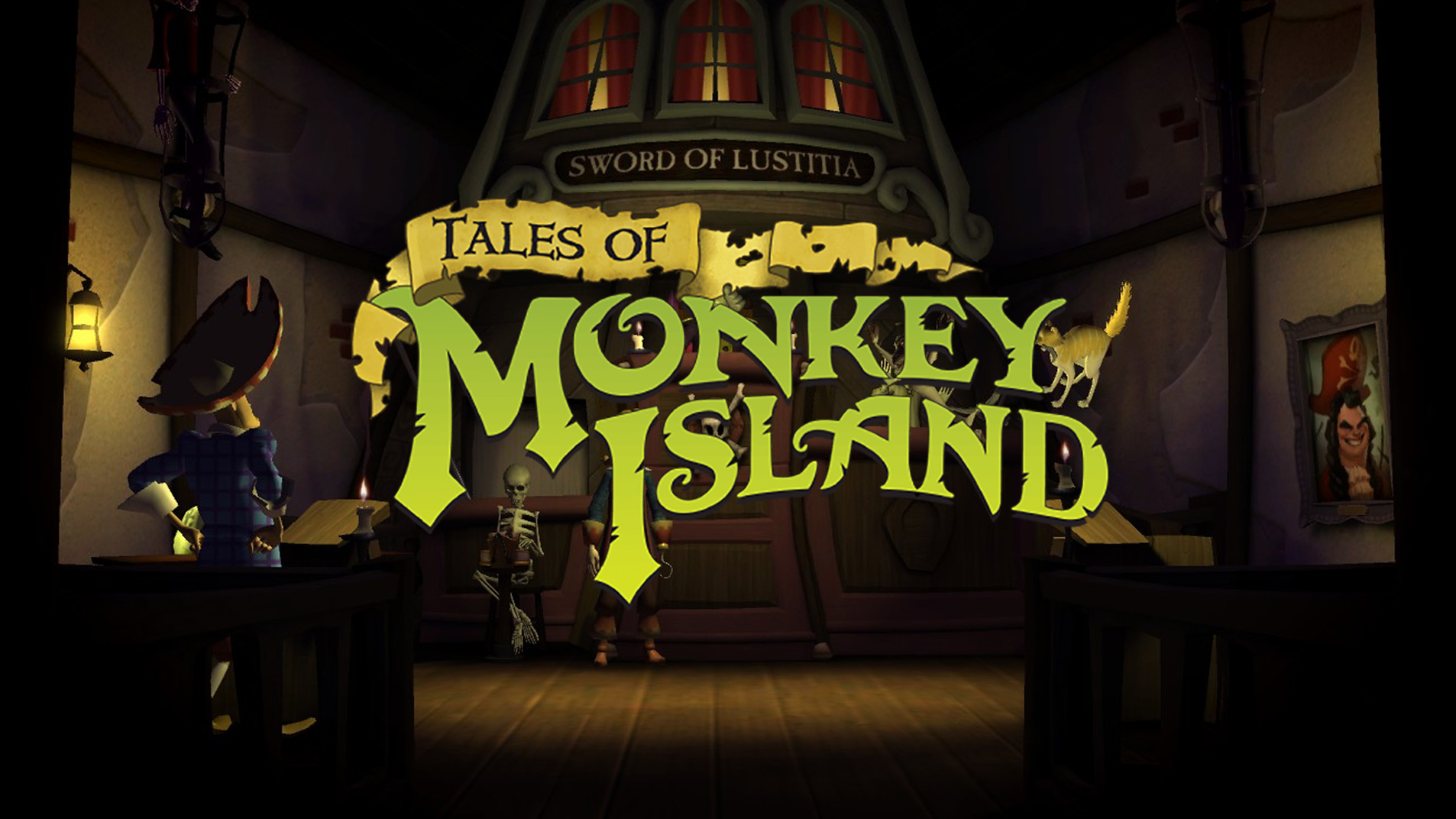Articles

Tales of Monkey Island Episode 4: The Trial and Execution of Guybrush Threepwood

Amongst the buzz and excitement of the Tales of Monkey Island announcement there was one thing that stuck out for me, a particularly intriguing tidbit that has been the subject of much speculation: Chapter 4 would be called The Trial and Execution of Guybrush Threepwood.
Now that it is here, the mystery behind its title has been answered and it falls upon me to offer up an opinion of it. Or, to be more accurate, I begged and begged a few months ago to be the one who got to do the review. I expected that this would be an easy task. After all, I know from experience that Telltale's episodes have a tendency to get better and better. This one's positioning in the series meant that it held the promise of lots of juicy story development, too.
I'm surprised to report, then, that The Trial and Execution of Guybrush Threepwood is my least favourite chapter in the series so far. In the same way that Lair of the Leviathan represented, for many, a big step forwards I couldn't help but feel that now we've gone backwards.
Geographically, we return to Flotsam Island. There was something nice about going there at this point in the series, especially now that it is under a starry sky and covered in a gloom reminiscent of Melee Island. There's a pleasing attention to detail in the consciously chosen yellows and blues of the colour pallette and it's just enough to assuage the familiarity of the setting. However, it isn't the return to Flotsam that I am referring to when I talk about a step backwards.
From the very outset, the delivery of the opening had a stilted feel. Long, akward pauses made it seem like not enough time had been spent on editing to make it feel fluid and cinematic, and it lacked dynamism in comparison to the previous chapter openings. Fortunately, the rest of the cut scenes are delivered well. Where I find the episode most lacking is in the puzzle structure.

Something that may come as a relief to some fans who have found the episodes to be on the short side is that Trial feels like the longest chapter in a while. There's a certain irony in that I find its length rather difficult to justify. Whilst some found Leviathan short, there's no doubt that it was lean and tightly constructed in its design, the puzzles and story integrated well. By contrast, Trial often feels like it's sending you around on a shopping list of errands which eventually culminate in plot development but individually feel rather arbitrary.
This isn't to say the puzzles themselves are generally bad. In fact, as usual, Telltale shines when it gets the chance to present a set-piece puzzle, one involving a sword fight springing to mind. While I must admit to an inward groan, too, when part way through the episode another variation of a map puzzle appeared, the solution itself was rather ingenious. However, the puzzles in this chapter fail to provide as much momentum as I have grown accustomed to. In addition, there are one or two that take the 'creative logic' of adventure games a little too far, resulting in some rather contrived puzzles.
The real problem with the way the game is structured, though, is that the plot is never given enough chance to breathe. There is a big lump of exposition at the beginning, then another in the middle and at the end. Everything else in between just seems like filler, a vehicle to get you from one lump of plot to another, with nothing like the gradual and subtle character development woven throughout the previous chapter. For this reason, while Leviathan's actual major plot content is far, far less substantial than in this episode, its character development and well integrated puzzles mean that the story was told better. A greater attention to plot and character development in between the heaps of exposition would have given the major revelations, twists and turns of Trial's plot (of which there are many) so much more weight.
The payoff, thankfully, is marvellous. The Trial and Execution of Guybrush Threepwood was always going to be the episode where the events of the previous chapters came to a head, where everything would come together to set up the big final episode. It certainly pulls this feat off admirably, with a little bonus at the end which I can't even hint at without giving the game away. Furthermore, above caveats aside, fans who have been waiting for some gravitas to temper the whimsy that has pervaded much of the series so far will find some here. The writing supports this for the most part, managing to achieve a balance between its usual humour and the seriousness required to carry the plot points through convincingly enough. Finally, for what it's worth, I can honestly say that by the end of the chapter I found myself hyped up and ready for Rise of the Pirate God, despite some of the reservations that I had while actually playing it. And all's well that ends well, right? Right??
Please don't hurt me.
Surplus Gamer
1st November, 2009.

P.S. The Inevitable Stan Bit
I suppose I couldn't possibly get away with writing this review without mentioning Stan, so here's as good a place as any. He's there, he's done correctly, his role in the game makes sense and while he feels far less essential than Murray did, he's used to good effect. The new voice actor is the latest in a line of almost-but-not-quite Stans but I can happily report that this is probably the closest that anyone has got so far. It's just that there's not all that much of note to say about him which is why he's floating over here instead of in the main body of the review.
